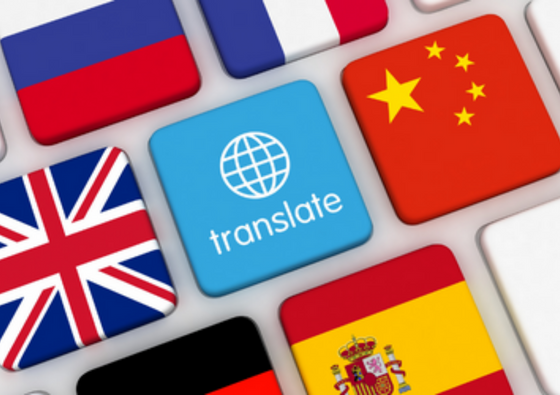Ever since the first demonstration of machine translation technology in 1954, the field has undergone constant evolution. Compared to its humble beginnings and the somewhat incoherent results of the word-to-word, rules-based machine translations (RBMT) of the 70s, 80s and 90s, current machine translation is vastly more sophisticated. Today, machine translation uses a much more intuitive Neural Machine Translation (NMT), so you would be a fool to speak badly in your native tongue in front of your “foreign” but mobile phone/google translate savvy mother-in-law.
Neural Machine Translation uses artificial neural networks modelled on the workings of the human brain to predict the likelihood of a sequence of words. It translates text by looking at entire sentences at once rather than individual words, much like we do when reading documents in our native language(s). This helps us understand the full meaning of the document and allows us to pick up on nuances that provide sub-textual information.
Earlier this year Altlaw were very pleased to learn that Relativity was launching an integrated AI (machine) translation function within RelativityOne. It is, of course, important to understand that this is not a replacement for human translation, and AI translation is not court admissible, but having dealt with translation projects of all sizes and complexity through the years, this has long been identified as a feature that would bring huge benefits by being fully integrated.
The benefits:
Benefits of this service as we see it are...
- Saved time
- Reduced costs
- Increased accuracy
- Improved speed
- Enhanced simplicity
- Reduced Risk (Data Governance)
The traditional approach to a multi-language review involves exporting the foreign language documents from the system, sending them to a third-party translator and then importing the translations back into the system so that they are linked with their originals. This is a resource-heavy, laborious process and even with an expedited service, will still take multiple days.
RelativityOne is able to achieve this task in minutes as opposed to days.
All tasks are automated and part of an established workflow which makes for a simplified and repeatable process that can be completed with a few clicks of a button by any individual. The process is the same for a single document as it is for a batch of thousands of documents and for single documents the translation can be completed directly in your document viewer.
The translated documents can then be fed to automatic review workflows and reviewers can proceed to review the translated documents as they would with non-foreign documents. Translated documents are clearly linked to their originals and can be easily exported together.
Machine Translated documents can also be used to aid human translation and court preparation.
RelativityOne and Relativity Translate both sit in the Microsoft Azure cloud. Whenever a document is translated the document never leaves the secure Azure boundary. This ensures that your data hosted with Altlaw eDiscovery will never leave the UK.
The service went live on September 1st and Altlaw has run through some sample documents to see how this new feature performs.




